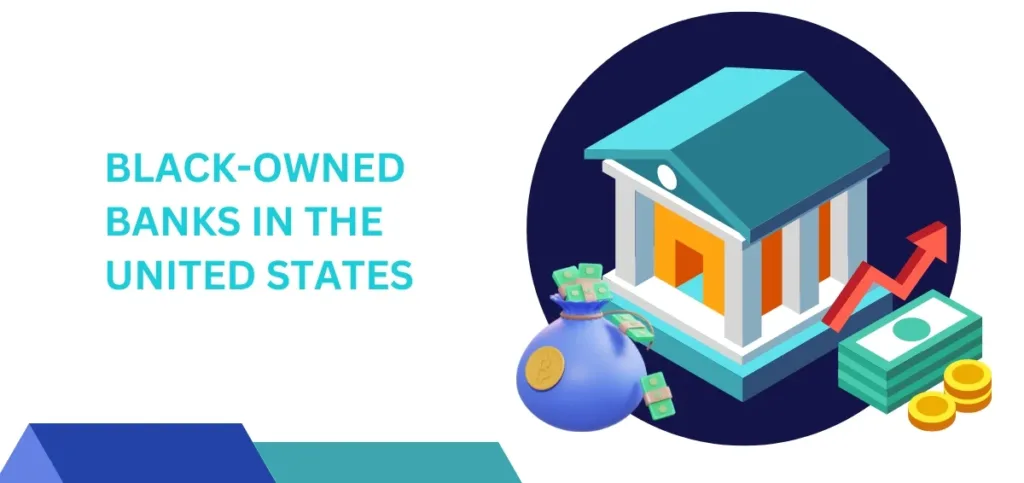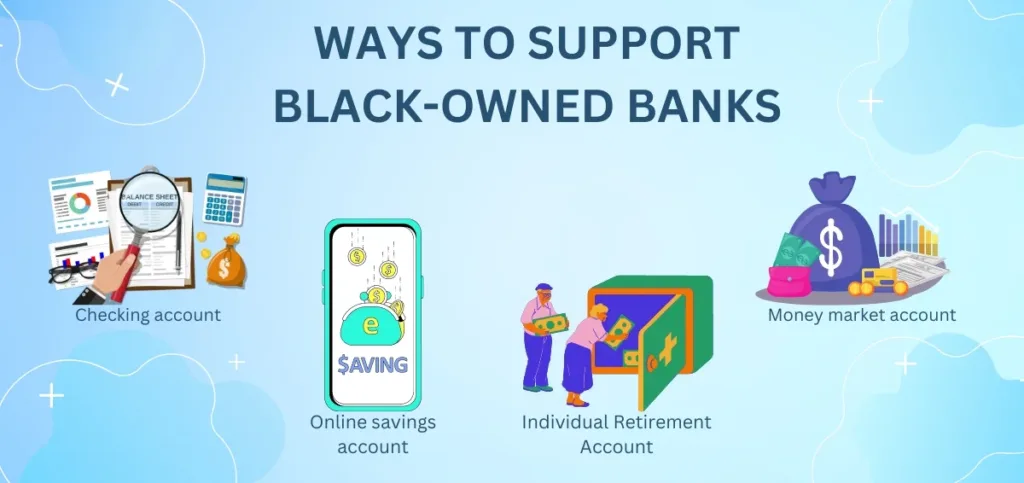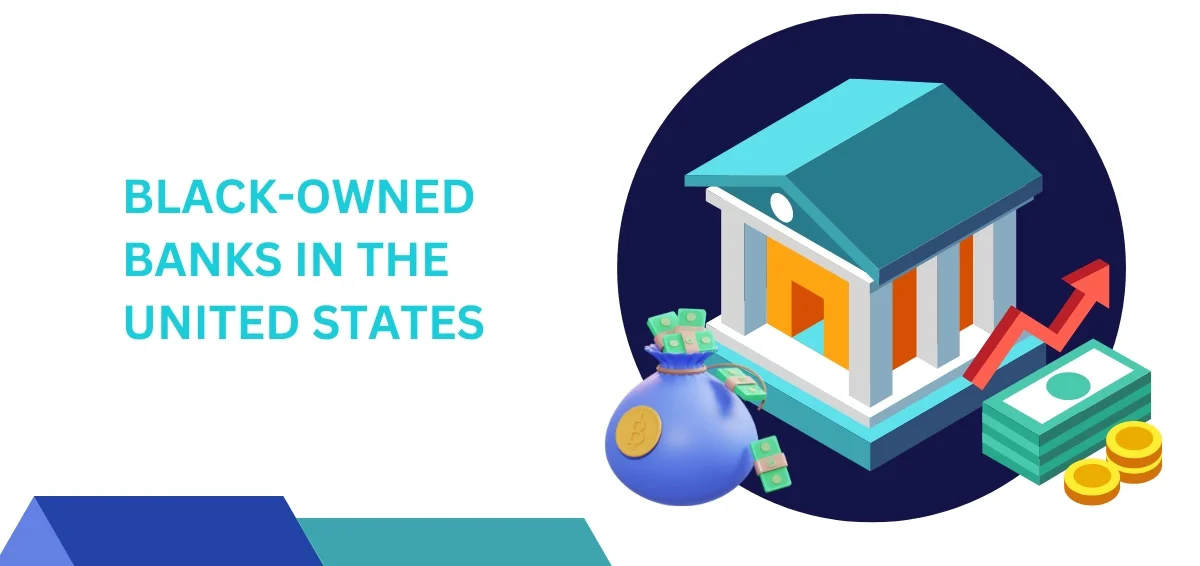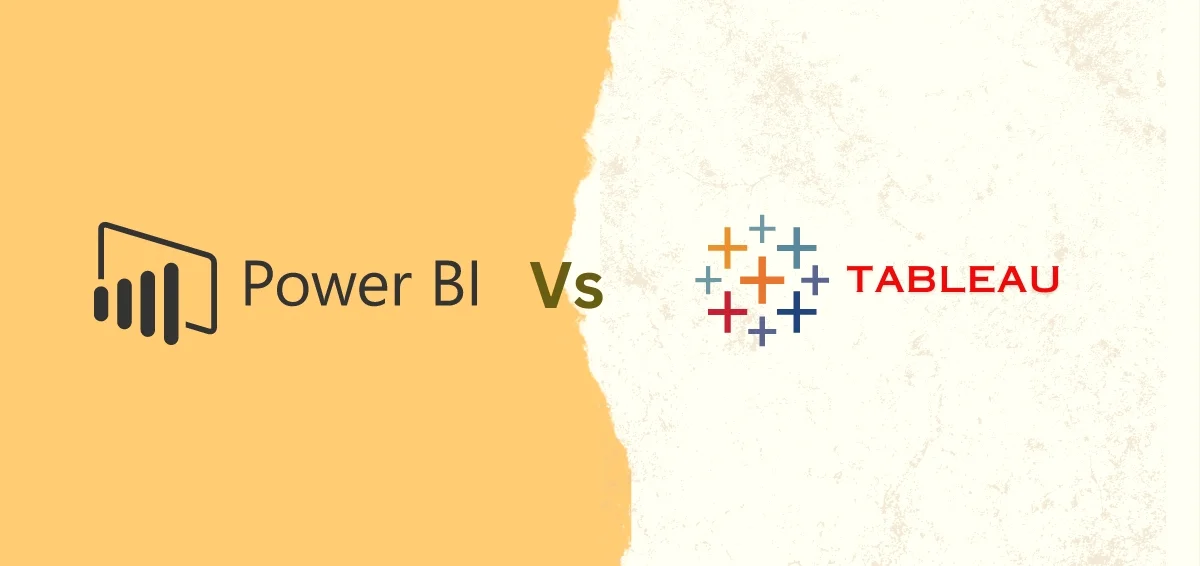
African Americans have faced racial discrimination in almost all aspects of life. The domain of banking or financial institutions is no different. Although the discrimination persists, black-owned banks are helping the African-American community and combating inequality. A majority of these banks serve as financial institutions for the upliftment of the Black community. Did you know that over 10% of black households are unbanked? Black owned banks are doing a lot to combat the financial inequality these communities have been subjected to.
Read Also: Best Cities for Black Families
What Defines a Black-owned Bank?
Black-owned banks are classified as Minority Depository Institutions (MDIs) by the Federal Deposit Insurance Corp (FDIC). MDIs are those institutions comprising 51% or more minority ownership. Such institutions serve minority communities. Black-owned financial institutions have always faced disadvantages in the banking industry. This is vividly illustrated by the fact that only two Black-owned banks have over $1 billion in assets compared to the four biggest U.S. banks, each with over $1.6 trillion in assets. It also implies that these institutions have fewer resources to support their communities.
A Brief History of Back-owned Banks In America
Black owned banks in the U.S. trace their roots to the 19th century. It was in the year 1888 that the first such bank, True Reformers Bank, was founded. It was set up by William Washington Browne, a former slave and Union Army officer from Georgia. Their emergence was mainly due to the financial inequalities faced by the Black community under the Jim Crow laws.
Since that time, these institutions have faced many hardships. The most notable ones include restricted access to capital, savings and loan crises, and the Great Depression. Nevertheless, the banks have contributed significantly to providing banking facilities and supporting the economic development of African American communities. Historically, Black-owned banks were community-focused. They catered to Black homeowners, entrepreneurs, and not-for-profit organizations. Beginning from the 19th century to today, these banks have played a significant role in extending financial services to low-to-moderate income areas.
How Many Black-Owned Banks Are There in the U.S.?
As of January 30, 2025, there are 40 black-owned banks in the U.S. These banks are scattered in various states of America. These include
- Arizona
- California
- Florida
- Georgia
- Illinois
- Louisiana
- Maryland
- Machhasutts
- Michigan
- Mississippi
- Missouri
- New York
- North Carolina
- Pennsylvania
- South Carolina
- Tennesse
- Texas
- Virginia
- Washington D.C.
- Wisconsin
The number today is much less than it used to be in the 1970s. Two decades ago, in 1976, there were over 50 black-owned banks across the U.S. The number fell considerably in 2008. Only 18 banks out of 50 survived after the financial crisis. By 2018, 23 insured financial institutions were owned by black people. In 2023, 22 such banks operated. Today, the largest black-owned bank in total assets in the U.S. is City First Bank. It has close to 1.2 billion total assets.
Read Also: Best Black-Owned Grocery Stores
Why There’s a Necessity to Revive Black Banks?

Black-owned banks are community-focused and wield significant local influence. However, the overall number of these banks has declined considerably in the previous twenty years. More specifically, since 2008, the number has reduced by 49%.
Black-owned banks fulfil the needs of African American households, businesses, and NPOs. Without these institutions, the needs of the Black community are unmet. According to the Annual Survey of Entrepreneurs by the U.S. Census Bureau, most Black families do not get credit. Their applications are rejected at a faster rate than their white counterparts. This, in turn, has a serious consequence on the wealth of the Black community. It widens the racial wealth gap in the U.S.
The presence of Black-owned banks is critical in areas where discriminatory practices like redlining prevail. Redlining is the practice of declining Black people’s credit facilities. Black-owned financial institutions practice relationship banking, a lending system that tries to holistically understand an applicant’s financial situation. It would not be an exaggeration to call Black-owned banks a singular lifeline for Black communities.
Ways to Support Black-owned Banks

There are many ways you can support Black-owned banks. You can open different types of accounts or borrow loans. It’s easy to open the following accounts in a Black-owned bank:
- Checking account
- Online savings account
- Money market account
- Individual Retirement Account
You can also avail of mortgage home loans and real estate loans from such a bank. Furthermore, if you want to start your business, you can apply for a loan. For example, banks like OneUnited Bank and Harbor Bank of Maryland offer many lending programs for budding Black entrepreneurs. OneUnited Bank’s small business or commercial real estate loans are especially popular.
According to the Federal Reserve Data, Blacks in America receive less credit than what they request. Black-owned banks like the Citizens Trust Bank offer a range of credit card options. You can use them to build your credit.
List of Bank-Owned Banks in Various U.S. States
Black-owned banks are spread all over America. These include:
1. Arkansas
- Hope Credit Union
2. Alabama
- Citizens Trust Bank
- America Bank
- Commonwealth National Bank
3. District of Columbia
- Howard University’s Employees Federal Credit Union
- Phi Beta Sigma Federal Credit Union
- City First Bank
4. California
- Broadway Federal Bank
5. Florida
- FAMU Federal Credit Union
6. Georgia
- Omega Psi Phi Fraternity Federal Credit Union
- Carver State Bank
7. Indiana
- Mount Zion Indianapolis Credit Union
8. Illinois
- G.N. Bank
9. Kentucky
- Liberty Bank
10. Kansas
- Liberty Bank
11. Louisiana
- Southern Teachers & Parents Federal Credit Union
12. Massachusetts
- OneUnited Bank
13. Maryland
- Municipal Employees Credit Union of Baltimore
- Harbor Bank of Maryland
- Andrews Federal Credit Union
- Industrial Bank
- Democracy Federal Credit Union
14. Mississippi
- Hope Credit Union
- Liberty Bank
- Jackson Area Federal Credit Union
15. Montana
- City First Bank
16. Missouri
- St. Louis Community Credit Union
17. Minnesota
- First Independence Bank
18. Michigan
- First Independence Bank
- Liberty Bank
19. New York
- Urban Upbound Federal Credit Union
- Carver Bank
20. New Jersey
- Messiah Baptist Church Federal Credit Union
- Andrews Federal Credit Union
- Industrial Bank
21. North Carolina
- Mechanics & Farmers Bank
- Greater Kinston Credit Union
22. Oklahoma
- First Security Bank and Trust Company
23. Ohio
- Adelphi Bank
- Toledo Metro Credit Union
- Toledo Urban Federal Credit Union
24. Pennsylvania
- Hill District Federal Credit Union
- United Bank of Philadelphia
25. South Carolina
- Palmetto Health Credit Union
- Optus Bank
- Brookland Federal Credit Union
26. Texas
- Unity National Bank
- Mount Olive Baptist Church Federal Credit Union
- Faith Cooperative Credit Union
- Oak Cliff Christian Federal Credit Union
27. Tennessee
- Hope Credit Union
- Citizens Bank
- Liberty Credit Union
28. Virginia
- Andrews Federal Credit Union
- Virginia State University Federal Credit Union
- Transit Employees Federal Credit Union
- Democracy Federal Credit Union
29. Wisconsin
- Columbia Savings and Loan Association
Summing up
Black-owned banks have contributed immensely to economic empowerment for African Americans. Despite facing challenges, these institutions remain critical for addressing the unmet financial needs of Black households and businesses. Supporting black-owned banks is the need of the hour for narrowing the racial wealth gap and fostering economic inclusion within underdeveloped communities.










